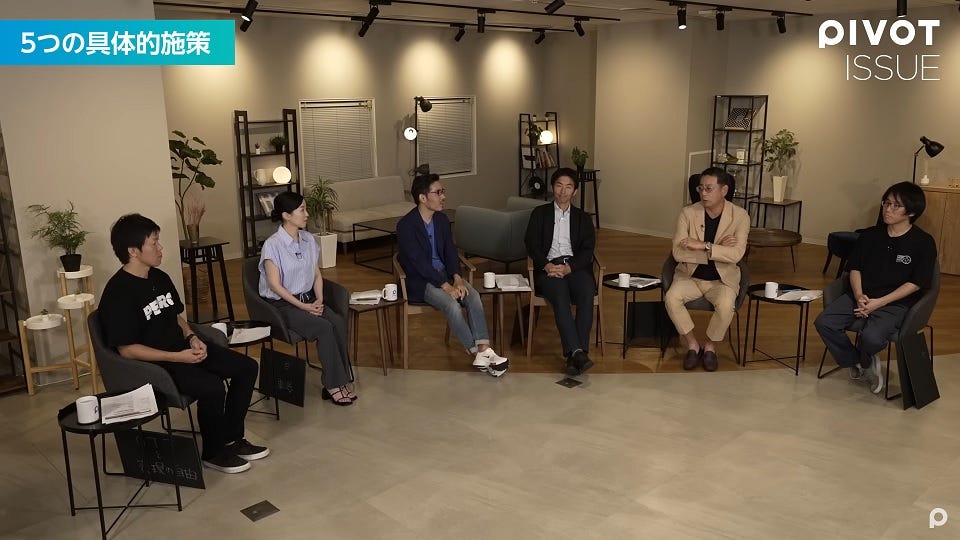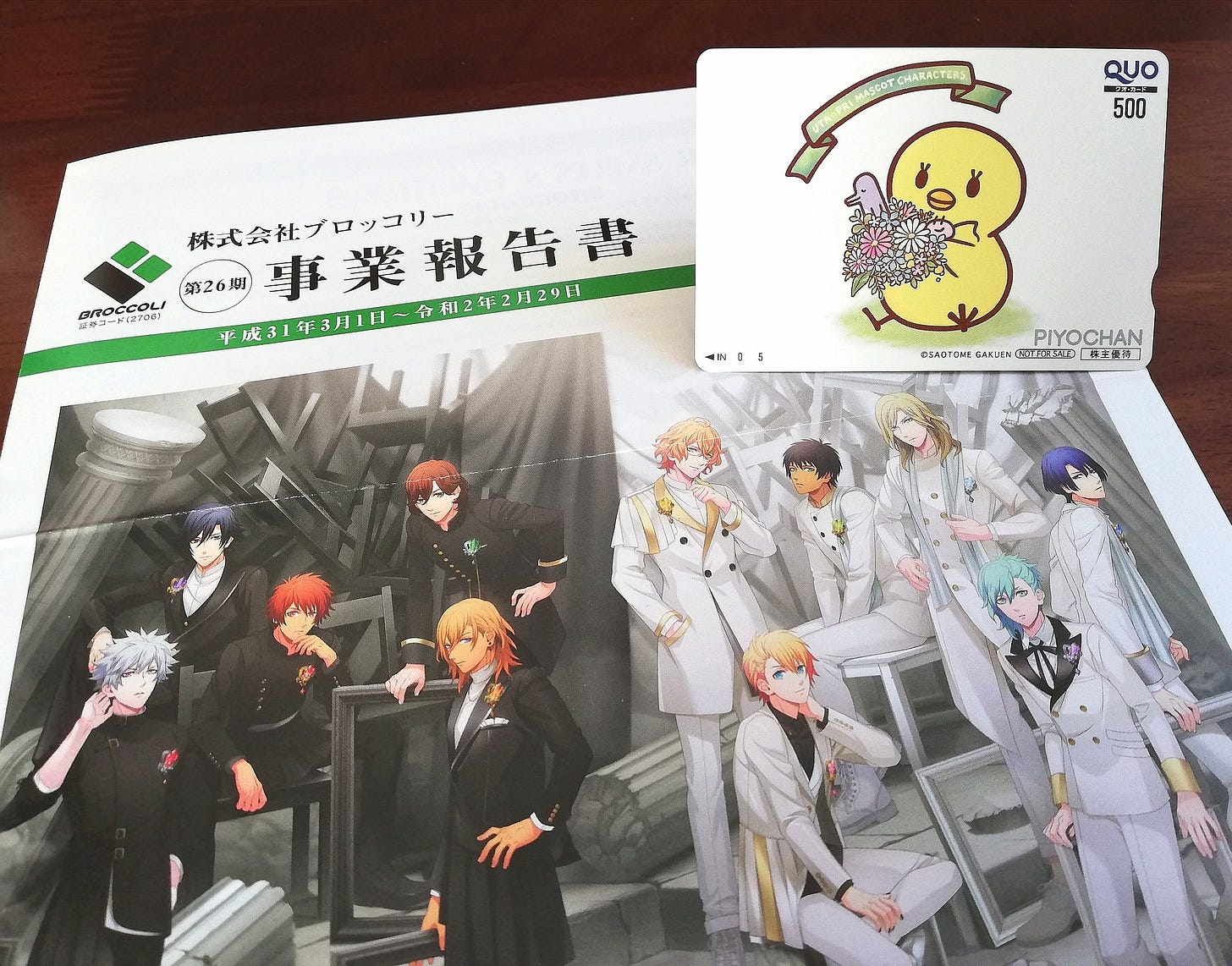Japan seeks new overseas content strategy
Plus: Female fans question direction of a favorite anime property; 'Oshi no Ko' manga print run rises sharply; 'Panty & Stocking' exits copyright limbo; and more
This is your weekly Animenomics briefing, covering the business of anime and manga. Today is Wednesday, July 12, 2023.
In case you missed it: A new Spy × Family – Code: White poster parodies Mission: Impossible – Dead Reckoning Part One in a cross-promotion campaign for the two films. Spy × Family is distributed in Japan by Toho, while Mission: Impossible’s latest installment is distributed by its Towa Pictures subsidiary.
Ideas abound, but no consensus on Japan’s overseas content strategy

Japan is in danger of losing its third-largest share in the global entertainment market, says the powerful Japan Business Federation lobbying group, also known as the Keidanren.
Driving the story: Sony Music Entertainment CEO Shunsuke Muramatsu, who co-chairs the federation’s committee on the creative economy, told a panel of entertainment industry experts that the next decade presents a final opportunity for Japan to secure its future as a global content producer.
In a policy proposal document published in April, the committee outlines its goal of growing the market of Japanese content overseas ¥15–20 trillion (US$107–143 billion) by 2033, more than tripling the current figure.
Some context: Keidanren’s proposal cites a PwC study that projects Japan having the lowest compound annual growth rate in consumer revenue out of 53 countries.
Japan faces growing competition from China in the video game market and from South Korea in digital comics.
Policy points include supporting projects by new creators with private sector consortia funding and spurring anime tourism by helping fans domestic and overseas go on “pilgrimages” to sites featured in popular works.
Yes, but: Some of Muramatsu’s fellow panelists were quick to poke holes at a few of the committee’s proposals.
Mikiya Shibatsuji, CEO of webtoon production company Whomor, points out that the manga industry already has a robust process for bringing new manga artists to the market, so some proposals would be redundant in that area.
Hanna Kang, a South Korean media scholar, notes Japan’s excessive focus on protecting intellectual properties and the rights of individual authors, making it more difficult for entire works to be licensed overseas.
Entertainment industry analyst Atsuo Nakayama believes Japanese content makers can have a bigger impact by selling their works directly to international platforms rather than to seeking support from Japanese ones.
Pointing to Shueisha’s global Manga Plus app as an example, Shonen Jump+ deputy editor-in-chief Yuta Momiyama recommends a shift in mindset by distributors to view content as a global product rather than as an export.
One big thing: The panelists agree that a major platform that distributes manga overseas, like Crunchyroll for anime, is absent today, but they could not come to a consensus whether such a platform should be built by a bookseller or an Internet startup.
Female fans make a stand for male pop idol franchise

A takeover bid of anime and video game retailer Broccoli, known in Japan for its chain of Gamers stores, is putting in question the future of one of the anime and video game industries’ most valuable intellectual properties aimed at female fans.
Why it matters: Broccoli is the creator of the multimedia franchise Uta no Prince-sama, which pulled the company out of eight years of financial losses and helped raise its market value more than 50 times between 2010 and 2017.
A tender offer by toy wholesaler Happinet for a majority of Broccoli’s shares last month put the value of the company at around ¥13 billion (US$90 million).
By the numbers: Broccoli reported that sales of Uta no Prince-sama merchandise featuring its male pop idol characters exceeded ¥1.8 billion (US$13 million) in the fiscal year ending February 2023.
Data compiled by Atsuo Nakayama, an entertainment industry analyst, shows this segment has remained a reliable source of core revenue for the franchise since 2011.
What to watch: Happinet was unable to take over Broccoli outright in the recent tender offer and still has to acquire the remaining 22.1 percent of shares to gain full ownership of the company.
Yes, but: Fans are also worried about the new direction of the franchise. An announcement in April that Uta no Prince-sama will debut a female idol group for a male audience sparked uproar on social media.
Behind the scenes: Unlike the traditional pattern of content development from manga to anime to merchandise, the characters and their voice actors form the basis of Uta no Prince-sama content.
The project was funded in part by King Records, one of Japan’s largest record companies not owned by a multinational conglomerate.
King Records tapped Noriyasu Agematsu, a long-time producer with the renowned Elements Garden music production company, to create songs to be performed by the voice actors.
Agematsu is credited with composing the song that brought voice actress Nana Mizuki to the number 2 spot on Oricon’s weekly CD single rankings in 2005, then the highest rank ever obtained by an individual voice actor.
Clippings: ‘Oshi no Ko’ manga a boon for Shueisha

The Oshi no Ko manga series will surpass 12 million compiled volumes in print with the release of its 12th volume next week, nearly tripling its print run since March, before the broadcast of its highly rated anime adaptation. (Mantan Web)
Hayao Miyazaki’s How Do You Live? will open in IMAX theaters across Japan at the same time as its nationwide premiere on Friday. It is the first film by Studio Ghibli to receive IMAX screenings. (Anime Hack)
The Hollywood Reporter described earlier this year how anime has become a strong growth area for IMAX in recent years.
The Association of Japanese Animations, an industry trade group comprising the country’s major animation production companies and studios, has added Kyoto Animation as an associate member. (Animation Business Journal)
California-based Dogu Productions will host cast members of Voltes V: Legacy, the Philippine live-action adaptation of Toei Animation’s 1970s anime Voltes V, at San Diego Comic-Con. (GMA Network via Twitter)
The former CEO of Australia’s Madman Entertainment, whose anime business was acquired by Aniplex in 2019, has formed a new anime distribution company for the country’s regional market. (Anime News Network)
Direct-to-consumer distribution weakens film criticism
“Domestic animation productions that have a high likelihood of becoming box office hits are no longer holding media previews.”
— Koremasa Uno, film journalist and Golden Globe Awards international voter
Context: In an interview with pop culture writer Toyoshi Inada, Uno reflects on the decline of journalistic film criticism in Japan and around the world.
Uno points to an increasing reliance by media outlets on public relations materials released by a film distribution company or an advertising agency, while film criticism is relegated to niche magazines and websites.
Our take: Decline in film criticism is also a reflection of today’s entertainment landscape, where content producers push to deliver media directly to consumers and cut out intermediate distributors and gatekeepers.
‘Panty & Stocking’ revival ends its copyright limbo

Last week’s Anime Expo in Los Angeles confirmed that anime production studio Trigger has acquired the original rights of Panty & Stocking with Garterbelt, a 2010 action comedy anime series, from Gainax.
Why it matters: The announcement is the first official confirmation of Panty & Stocking’s copyright status after the intellectual property was left in limbo when series director Hiroyuki Imaishi left Gainax in 2011.
The decade-long dispute between Gainax and Imaishi is an example of how rights to anime works are usually retained by corporate committees rather than their creative teams.
Backgrounder: Imaishi founded Trigger in 2011 with anime director Masahiko Otsuka shortly after the two left Gainax due to disagreements with the studio’s management.
In 2016, Gainax also clashed with another offshoot studio Khara, founded by Neon Genesis Evangelion creator Hideaki Anno, in dispute over royalties owed to the anime director for works he created while at Gainax.
What’s next: Trigger will produce a new Panty & Stocking anime led by Imaishi, who also gained co-ownership of the property.
Imaishi also gained personal co-ownership of Gurren Lagann, another anime property he directed while at Gainax. The anime’s movie compilations will hold 15th anniversary screenings in Japan in autumn.
Thanks for reading this week’s newsletter. Sharing this newsletter helps others learn more about the anime and manga industries. You can also find us on Twitter and LinkedIn.


